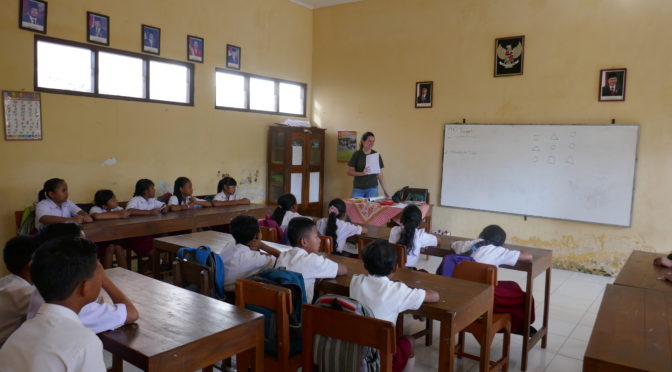Last week, I had the pleasure of visiting the village of Kemuning, located in Central Java. With the collaboration of Universitas Gadjah Mada, I was able to visit many different schools in the area and continue with the LFP education curriculum Forest Protector. If you read my last blog, you may remember that Forest Protector is meant to inform children about slow loris behavior and ecology, and also encourage empathy and a desire to protect these endangered primates.
The lesson starts with a pre-test about what the children have previously learned about slow lorises, including trying to draw what they think a slow loris is. I am always surprised by how many children have never heard of a slow loris before. There is almost always a wave of shocked disapproval when I ask everyone to do their best to draw a slow loris. I have found that many of the children here do not quite know what to do when faced with such a broad assignment. If they are asked to use their creativity alone to attempt to draw an animal that they have little familiarity with, they tend to just not want to draw at all. It always takes a bit of encouragement from me and my team to make everyone understand that it is okay to be wrong – the most important thing is to try.
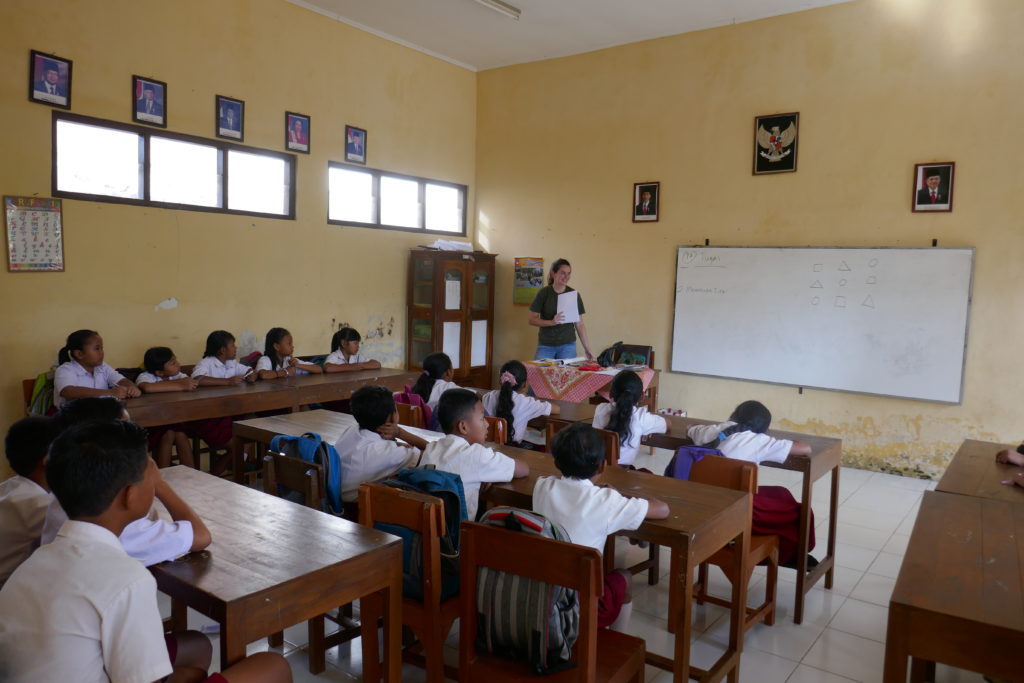
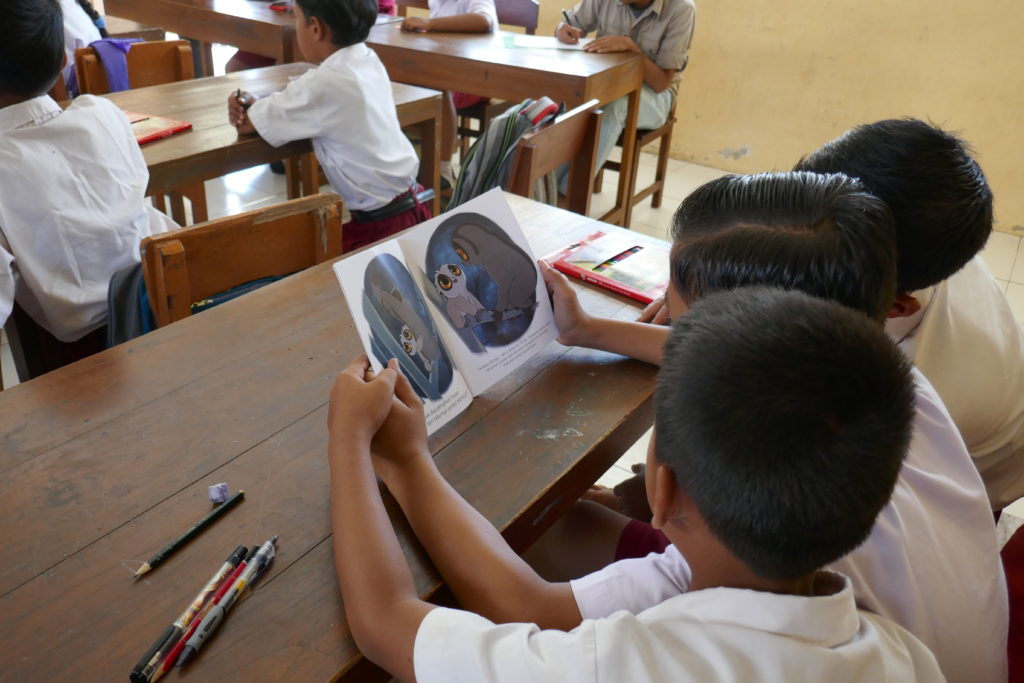
The most engaging part of each lesson always seems to be the story book. The story follows a mother and juvenile slow loris as they go about their nightly routine. The mother, Tereh, teaches her son, Bunga, how to find food and why their role as “forest protectors” is so important. I think the mother/child theme resonates with the children when they think about their own mothers, and how they too were taught by their parents about daily life. The messages of the book are reinforced by activities that the kids get to do at the end of each session. These include coloring slow loris masks that the children can use to act out scenes from the book, or create new scenes, as well as slow loris origami, and a memory card game. These activities are a lot of fun for the children, and also subtly reinforce what they have learned about slow lorises and conservation throughout the lesson.
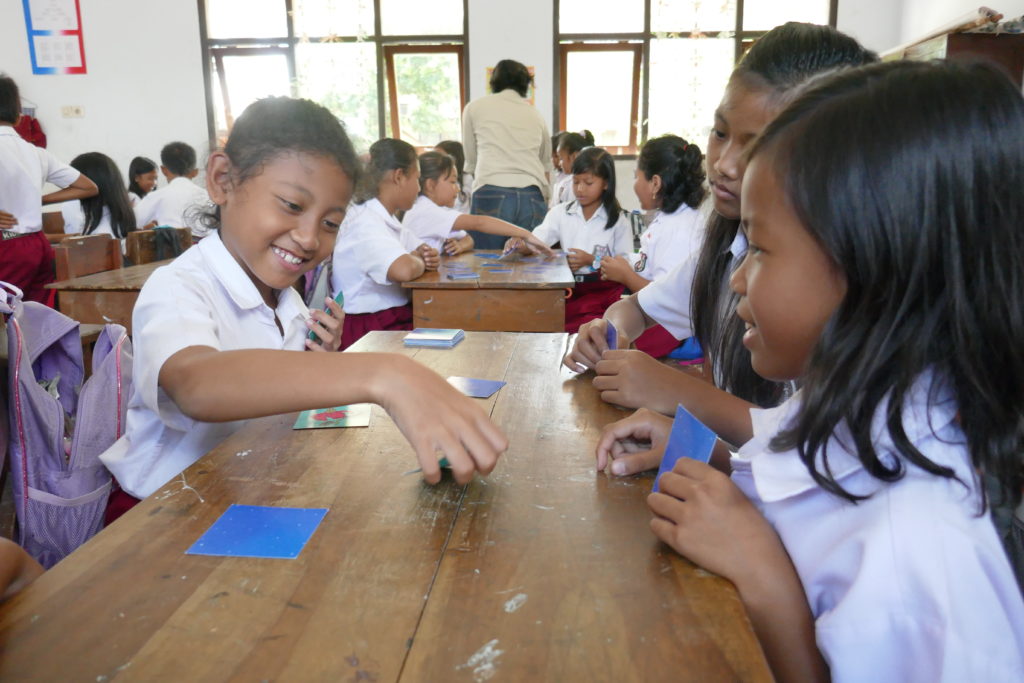
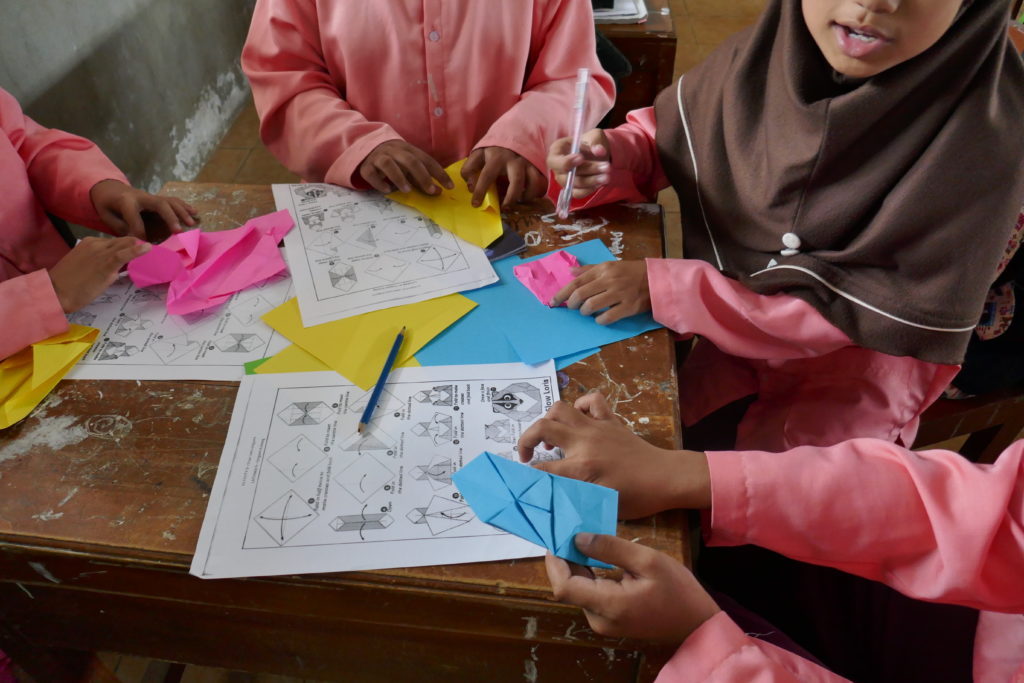
Meeting all these different children – who come from such a variety of backgrounds and environments all over Indonesia – has been such a privilege. I am so happy that LFP is able to extend its reach to further locations than our study site, influencing the future generation of Indonesia to love and protect its wildlife. ELLA BROWN

